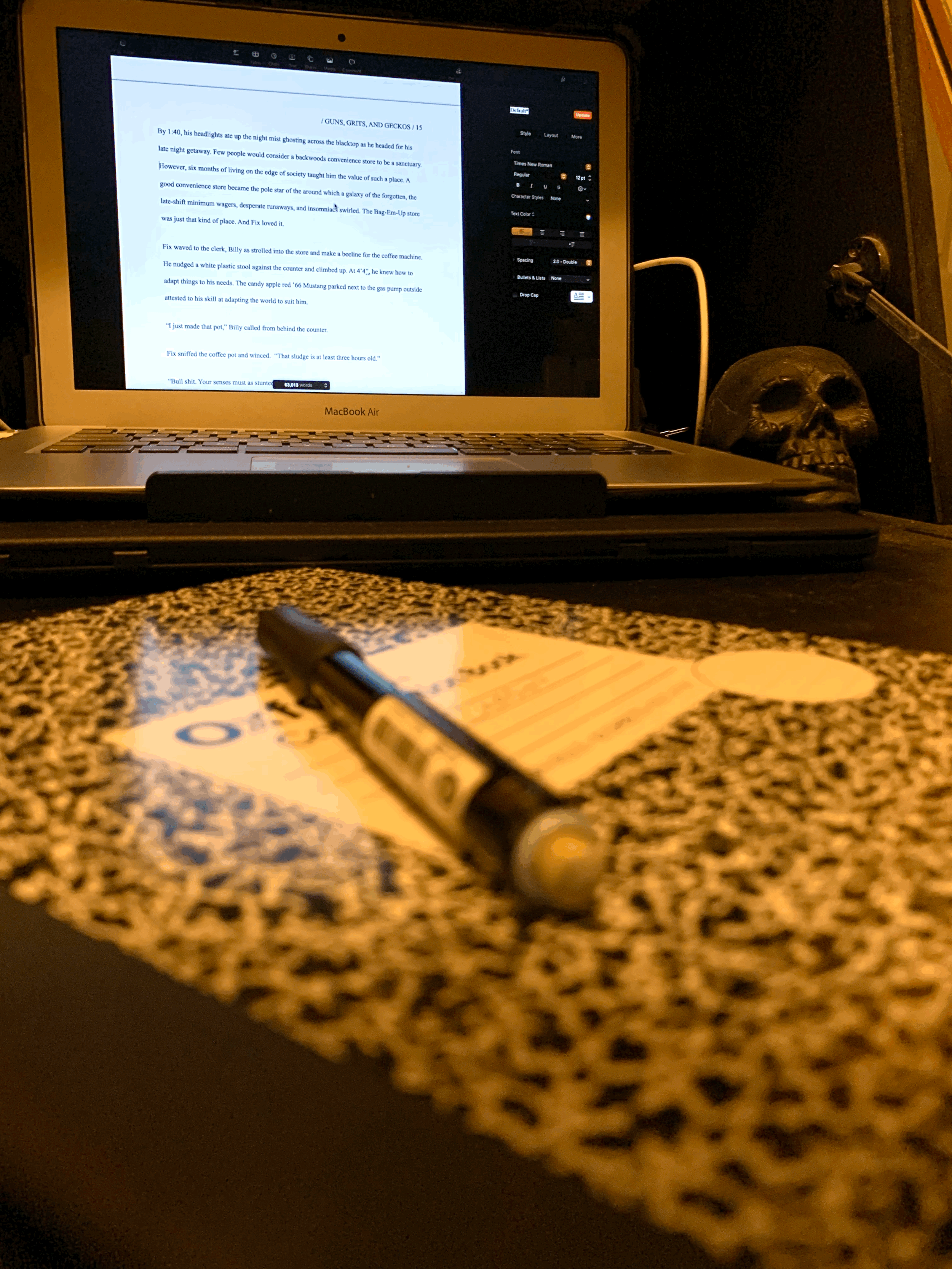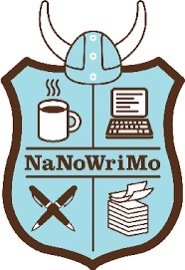First, let me start by stating that I’ve got nothing against NaNoWriMo. A few years ago, I participated as well. So, I wish all that participate the best of writing wishes.
Now that’s out of the way, let me tell you why I won’t be participating in NaNoWriMo.
Writing is a craft, a skill, an art. As with any work of art, one needs the correct tools to assist in completing the piece. With painting, an artist may use a myriad of tools to get paint to canvas. Brushes, knives, sponges, and even fingers are used to create the visual image.
The tools of a writer are limitless. First and foremost is our imagination. We create whole worlds out the firing of synapsis in our brain. From there we use the tools of media to bring the images to the visual. Whether it’s pencils, pens, computers, or wooden blocks of type, we use the tools that work best for us.
NaNoWriMo is just another tool for a writer’s art box. For many, this tool allows them to focus intense energy into getting 50k words committed to a project. By providing the structure of daily word counts and fellowship with other writers, many people have achieved their goal of finally writing the book that they’ve only talked about for so long.
For me, it’s a tool that works against my goals. I’m currently 65k into a detective thriller and things are going great. My biggest fault as a writer is wanting to get to the end. I begin a novel knowing where I want it to end. As I move along, I get so excited and caught up in the story, that I tend to rush things. I want to get it all out of me in one big rush and point at it and say, “Look! There it is!”.
However, that’s not a good template for writing detective thrillers.
I need to slow down and take time to build all of the layers. My time as a reporter taught me how to cut out the fat of the story. But, as with cooking, when it comes to writing a good novel, fat is where the flavor is at. True, you can add too much. Still, it’s got to be in there to provide the richness.
So, NaNoWriMo is not the right tool for my style of writing. If it is for you, great. Use the tools that work. Either way, I hope that November is a productive writing month for everyone.











